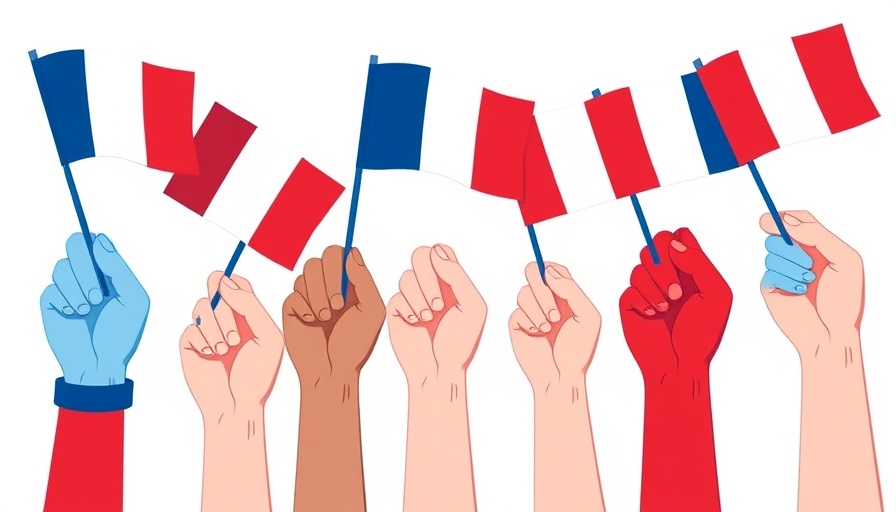
Understanding the Trump Administration's DEI Ban: A Shift in Global Corporate Standards
The Trump administration's recent order mandating French companies with U.S. government contracts to adhere to a diversity, equity, and inclusion (DEI) questionnaire represents a significant expansion of U.S. policy influence abroad. This directive has sparked intensive discussions regarding the transatlantic economic relationship and the alignment of corporate practices across borders. The DEI mandate is not just a regulatory issue; it illustrates the broader implications of 'America First' policies on international business.
The Role of DEI Programs in Corporate Strategy
Diversity, equity, and inclusion initiatives, particularly popular in the U.S., aim to foster a workplace that actively promotes diverse perspectives. U.S. companies widely track race and ethnicity data, champion diversity targets, and innovate corporate policies that challenge discriminatory practices. In contrast, France’s historical approach has focused more on secularism and universalism, where data collection on race is legally restricted. French firms typically emphasize gender and socio-economic factors in their corporate policies.
The Intricacies of French Corporate Compliance with U.S. Policy
The move by the Trump administration raises critical questions regarding compliance and adaptability for French companies. They now confront a duality of corporate cultures: responding to U.S. federal regulations while maintaining alignment with French laws. The questionnaire mandated by U.S. authorities not only affects compliance but could incentivize a shift in how French firms view inclusion, compelling them to navigate a politically charged landscape.
Impact on Transatlantic Relations: A Fraying Alliance?
This enforcement of U.S. DEI standards on French soil may further strain relations between the U.S. and Europe. France’s Ministry of Foreign Trade expressed its concerns, labeling “American interference in the inclusion policies of French companies” as unacceptable. This discontent signals an escalation in tensions over economic sovereignty and regulatory capabilities in the face of increasing globalization.
Evaluating the Responses from French Corporations
The immediate reactions from affected companies signal a notable disparity in how U.S. policies are perceived abroad. Firms like Orange, which has no U.S. operations, received the compliance request, while others with a presence in the U.S., such as TotalEnergies and Thales, did not. This discrepancy raises eyebrows regarding the criteria used for selecting companies under compliance scrutiny and raises transparency concerns surrounding U.S. policy implementations abroad.
Future Predictions: Will Other Nations Follow Suit?
If the Trump administration's efforts to enforce DEI compliance internationally succeed, could other nations emulate this model? The implications stretch far beyond France, presenting a potential domino effect that would require global companies worldwide to adapt to American standards. Corporate strategies will inevitably evolve, but the consequences of such adaptations may differ based on regional values and regulatory landscapes.
Conclusion: Reimagining Diversity on a Global Scale
The extension of the DEI ban to French businesses underscores a crucial moment in how diversity policies are framed within global corporate operations. The finding raises both opportunities and challenges for international corporations, necessitating an examination of how these companies define merit and equity going forward. As corporate landscapes continue evolving, the question remains: how adaptable will companies be in redefining their inclusion strategies to harmonize U.S. and European ideals?
 Add Row
Add Row  Add
Add 




 Add Row
Add Row  Add
Add 

Write A Comment